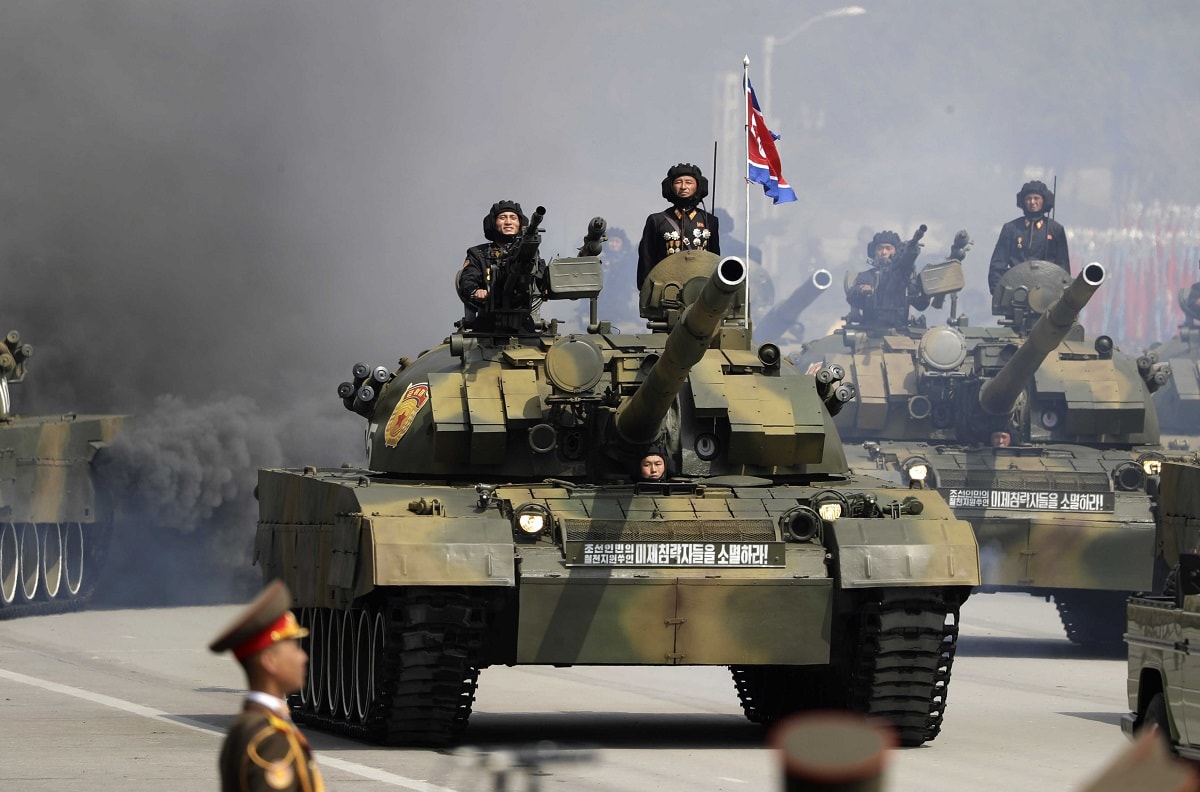North Korea has long been rumored to be working on smaller nuclear weapons. These could be deployed on a battlefield alongside traditional conventional weapons, adding significantly more destructive power to traditional military formations. Given that North Korea is technologically far behind its rivals, this makes military sense. Such ‘tactical’ or battlefield nukes help level the conventional playing field where NK is far behind.
But it is also risky. Even a small nuclear weapon used on a battlefield would still be a nuclear detonation. It is unclear how South Korea or the United States would respond – or even China, North Korea’s ostensible ally. Indeed, international relations theory has a term for this uncertainty around nuclear use – the ‘nuclear taboo.’ Nukes have been used only twice at the very beginning of the nuclear age (in 1945); they have since had a unique escalatory aura – a taboo. No one is really sure how an opponent would react if it were nuked. For example, the taboo has likely helped stay Vladimir Putin’s nuclear hand in Ukraine as he has conventionally struggled to win.
Why Does North Korea Want Battlefield Nuclear Weapons?
The most likely reason for North Korea’s interest is the country’s conventional military backwardness.
Nuclear weapons, re-imagined as just larger battlefield weapons, would help shrink the conventional gap with North Korea’s much more technologically advanced opponents, South Korea and the United States. The Korean peninsula is narrow (150 miles wide), with unpassable mountains in much of the middle of the country. So there is not much room for US and South Korean land forces to maneuver. Hence, even small nuclear weapons would be especially useful in these straitened circumstances. They could easily wipe out mass South Korean army formations or US bases in the South.
Moving to new and varied nuclear deployments makes sense for North Korea. Pyongyang has achieved the basic goal of most nuclear weapons states – strategic deterrence with its opponents. It now has the large warheads and long-range missiles necessary to strike the homeland of almost any opponent with massive firepower. This dramatically reduces the likelihood of a preemptive attack on North Korea, because the North could massively retaliate.
This strategic option is most obviously directed against the United States, but more broadly, North Korea can wreak enormous damage on almost any country. Missile defense does not work well enough to guarantee the defense of targeted states, and the North will build enough to overwhelm any anti-missile shield.
With this basic deterrent completed, the North can consider deploying nuclear weapons elsewhere, such as on submarines or in artillery shells. Both moves are likely. Nuclear artillery is obviously valuable given the general obsolescence of North Korean military equipment. The Northern army is large – 1.5 million – but uses equipment modeled on the Red Army of the former USSR. It is widely assumed that in a straight conventional contest with the South and US, North Korea would lose badly. Battlefield nuclear weapons – with their greater bang for the buck – are an excellent way to equalize this losing competition.
What Options Do We Have?
Very few, unfortunately. Most nuclear weapons states have shied away from aggressively developing tactical nuclear weapons – or at least not talked them up – for obvious reasons. They are very destabilizing. They may indeed provide more bang for the buck on the battlefield, but they come with severe ancillary risks.
They encourage opponents to put nuclear weapons into traditional military formations with, presumably, local command authority over their use. They also lower the threshold for nuclear use. Strategic – large, city-busting – weapons are intended only for dire emergencies of imminent state collapse. This is a high bar; few states are going to risk pushing a nuclear-weapons state to that extremity. But conventional military exchanges which do not threaten a state’s existence are far more common – North Korea has militarily provoked South Korea for decades. Now, these confrontations may have a nuclear sheen.
As always, there is little we can do as North Korea marches toward more, better, and more varied weapons. We should negotiate, of course, where possible, although former President Donald Trump’s failed diplomacy with North Korea strongly suggests the North is unwilling to seriously denuclearize. Instead, South Korea needs to think more about decentralization – to provide fewer concentrated targets – and the US might start thinking about reducing the size of its South Korean bases, or at least their civilian component.
Dr. Robert E. Kelly (@Robert_E_Kelly; website) is a professor of international relations in the Department of Political Science at Pusan National University. Dr. Kelly is a 1945 Contributing Editor as well.

